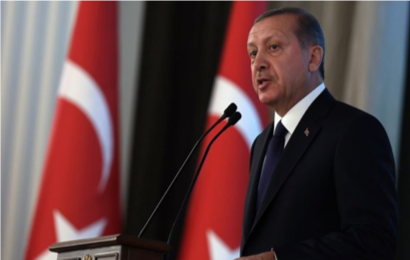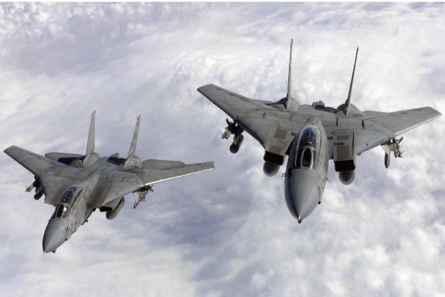Nov. 1st-6th, 2018
US Sanctions Imposed with Exemptions, with No Clear Prospect for Talks Yet

On November 5, 2018, the US re-imposed comprehensive sanctions on Iran. The sanctions target Iran’s oil, banking and transportation sectors. According to the Trump administration, the sanctions will force Iran back to the negotiating table with the United States. Foreign Minister Javad Zarif said that Iran was receptive to talks with the United States, but only if Washington changed its approach by ending pressures on Iran. Washington insists that the sanctions will remain in place until Iran is permanently stopped from acquiring nuclear weapons capability, its missile program is contained, and it halts its disruptive regional influence in the Middle East. Iran’s leadership has not addressed these demands and has instead gone on record to condemn the US for the latest sanctions.

President Hassan Rouhani said that the sanctions would harm ordinary Iranians. He vowed that Iran would sell its oil in international markets regardless of sanctions. The head of the Quds Forces, General Qassem Soleimani, fired back by promising to stand up to the US president. There is no clear prospect for talks yet given the exchange of harsh rhetoric between Tehran and Washington. Iran remains hopeful that it can beat sanctions and resolve its economic crisis without having to succumb to US pressures. It continues to work with the Europeans to develop special channels for trade, commercial and financial transactions. Recent revelations, however, of Iranian involvement in a terrorist plot in Denmark to silence opposition Iranian groups abroad have worked against Iran. This is the second terror plot attempted in EU countries this year by Iran. The first was in Paris when an Iranian diplomat was arrested over a plot to attack an opposition gathering in July. The impact of these events could possibly change the EU countries’ ability to maintain close relations with Iran, and invoke some sort of punitive response against Tehran.
Within the region, the response to sanctions by groups such as the Palestinian Hamas and countries like Turkey has been outright hostile. This encourages Iran’s defiance. In an interview with Al-Mayadin, a prominent Hamas leader Ismail Radwan described the sanctions as cruel and hostile. Since Hamas has lashed out at countries that favor anti-Tehran policies and blasted those who support the US sanctions, it seems to increasingly function as an instrument to serve Iran’s interests to portray itself as a victim of US policies. This implies the group might be willing to help Iran, even more, to advance its revolutionary ideology in the region as one way to defy the United States, by asserting its claim that it stands in solidarity with Muslims in the Israeli-Palestinian conflict. Turkey has strongly decried the sanctions by announcing that it will not abide by them.

Turkish President Recep Tayyip Erdogan insisted that the primary aim of the sanctions was to create an imbalanced world, very likely an imperialistic one in which he would refuse to live. Turkey’s reliance on Iran’s natural gas is an incentive to oppose the sanctions. Turkey is less reliant on Iranian oil, and it could potentially diversify its markets for gas, which means that it should not remain exempt from the sanctions and the punishments it entails should they be broken unless the US insists on making special deals with Turkey.

It is no secret that sanctions have failed to completely halt Iran’s oil and gas exports. Some countries like China have flatly rejected the notion that US sanctions can prevent relations with Iran within the confines and norms of international law. So far, Iran’s compliance with the nuclear agreement endorsed by the UN in 2015 means that China does not see any violation on Iran’s part that would justify halting trade and commerce. China has taken other steps to ensure Iranian compliance, such as the closure of or strict controls over Iranian-held accounts in Chinese banks, and a push to encourage Iran to adopt the Financial Action Task Force (FATF) against international money laundering and terrorist financing.
The US has offered exemptions to the sanctions regime to a number of allies. India will continue to invest in and develop the multi-million dollar Chabahar Port in southern Iran. The Chabahar projects include the building of a railway to facilitate regional trade, including to Afghanistan. Iran will also continue to export gas to Afghanistan, and there is a great deal of informal energy and financial trade activities that will likely continue along Iran’s borders despite the sanctions regime. Washington has further excluded eight countries from sanctions to allow them to import oil from Iran, including China, Greece, India, Italy, Japan, South Korea, Taiwan, and Turkey. Some of these countries, considered close US allies, have long-term oil contracts with Iran that extend beyond the November date of the sanctions. Breaking these contracts could harm the interests of these countries, and harm US foreign relations.

Even before the sanctions kicked in, it was clear that Washington would fail to completely halt the flow of Iranian oil. Iran claimed that it exported some 2.2 million bpd of oil in October, despite earlier forecasts that its oil exports would drop by at least a million barrels per day. Iran successfully stored oil on the sea and sent shipments to international markets before the deadline for renewed sanctions in November. This indicated that Iran could rapidly exploit available opportunities to export more oil to ease the pressure of sanctions and that the US lacked the means to control or counter Iran fully on those fronts. Iran has promised to use whatever means available to circumvent the sanctions and proudly boasted of its experience in this area.
It remains to be seen how Iran will effectively shift international oil and gas prices moving forward. Iran’s early initiatives will likely focus on alleviating the financial pressures caused by sanctions, which means selling oil at any price. The money owed to Iran through the sale of oil and gas, in many instances, will be blocked for special purposes such as meeting humanitarian needs like food and medicine. What is clear is that the US failure to control Iranian oil exports may have helped prevent a sudden hike in oil prices. This, in turn, may have eased concerns over the Trump administration’s inability to prevent an oil price hike as a result of the sanctions and helped ensure more votes and a final victory for the US Republican Party in the US Senate in the midterm congressional elections on November 6, 2018.
Iran’s Military Defiant but Vulnerable in Face of Sanctions

Iran’s indigenously produced fighter jet Kowsar, unveiled as US sanctions kicked in, will neither challenge its rivals in the region nor allow the Iranian air force to see its mass production soon, leaving the country dependent on missiles and robust armed drones for combat purposes. But Iran claims that Kowsar’s serial production is underway, though it coincides with the US slapping of sanctions on Iran which makes the aircraft’s inauguration appear as a publicity stunt.
Iran’s Defense Minister Amir Hatami inaugurated the production line of the Kowsar fighter jet in the lead up to renewed US sanctions. The fighter jet was first unveiled last August, as an upgraded copy of F-5s that Iran had acquired from the United States in the early 1970s. Tehran has not disclosed what upgrades the knockoff version of the F-5 fighter offers. But it has exhibited limited ability to tinker with technology and achieve favorable results. Without mincing words, Iran’s army chief Major General Abdulrahim Mousavi has boasted that the production and development of the fighter aircraft by Iran shows its ability to be self-reliant. The same self-reliant spirit will render ineffective the latest US sanctions, according to Iran’s leaders. These statements suggest that Iran’s military posturing in the face of sanctions is a mixture of defiance and vulnerability. The country insists that it can ensure its own security through strong indigenous military capabilities, but it also recognizes that to beat sanctions and isolation it will be called for to build even greater self-reliance.

It is not clear as to how well can Iran achieve both goals. After a decade of hard effort, Iran was able to keep over two dozen F-14 Tomcats systems operational, despite severing military ties with the US, which had long served as its main arms supplier. The systems had in fact been delivered to Iran a few months before the ouster of the Shah in the lead up to the Iranian revolution in 1979. Some of the upgrades that Iran made were done with help from China and Russia, both of which have keenly worked on learning from the US ace aircraft.
As a result, today Tehran is the sole keeper of the F-14 Tomcat. That Iran has maintained and kept the plane fight worthy is impressive. But upgrading a second-generation fighter jet to fourth-generation standards is a challenging task. Iran has attempted to also reverse engineer some 44 in-service fourth-generation fighter jets including the F-16, F/A-18, Su-35, Eurofighter Typhoon, Dassault Rafale, MiG-35, J-10, and JF-17 Thunder. Iran’s F-5 Tigers – now reverse-engineered under the name Kowsar, however, lack fly-by-wire control systems and digital data processing capability for higher maneuverability.
Although it is plausible that Tehran can acquire better avionics and radar systems from Beijing, with which it had signed an agreement on back in 2005, its real military capabilities show vulnerable designs. At the inauguration of Kowsar, Iran was charged with hiding the fact that the aircraft was actually not ready, and instead brought the F-5F used to test its avionics. Since then, Iran has failed to release any further information that rejects these charges, suggesting that Kowsar will have a different airframe than what is claimed. In a similarly bizarre manner, Iran had once before also showed off a parked model of its fifth-generation stealth fighter – Qaher F-313 – in February 2013, which was seen taxiing at slow speed on a runway in 2017 but has yet to make its maiden flight.
Organized Public Anger Escalates as US Sanctions Return

Dissent is growing in Iran regardless of the high cost. Many are beaten, tortured, or receive long prison sentences for showing the ability to operate dissent in an organized fashion. Sanctions will likely increase protests in Iran as economic pressures mount. After recent prolonged and ongoing strikes by truck drivers and earlier demonstrations by school teachers demanding payment of outstanding salaries, the Iranian security forces have stepped up the crackdowns.
Plainclothed agents arrested journalist Masoud Kazemi at his home on the very same day that sanctions were re-imposed on November 5. The activist had tweeted about the rampant corruption in the Ministry of Industry, Mines and Trade. His twitter account has been suspended since. A journalist and editor-in-chief of the monthly magazine Sedaye Parsi, (Voice of Persia), Kazemi had also previously reported for the reform Sharq newspaper, Qanoon (Law) and Mardom-e Emrooz (People Today). His arrest is part of a larger campaign to silence journalists in Iran. The Committee to Protect Journalists ranks Iran in league with China and Turkey for having the highest number of jailed journalists and suppressing press freedom.
The crackdown on the Iranian people has turned uglier since the sanctions. Hashem Khastar – an outspoken activist teacher, was forcefully confined to a psychiatric ward in Mashhad’s Ebn-e Sina Hospital after he was arrested last week along with eight others. His family insists that he has no history of mental illness. Yet, he awaits trial as his family and friends are barred from visiting him. His only crime was to successfully organize teachers to demand improved work conditions and better pays, especially as Iran’s currency has rapidly devalued in recent months.

In another act of public defiance, the poetess Zahra Khoshnavaz violated Iran’s ban on women entering football stadiums. She sneaked into Tehran’s Azadi Stadium for the third time on October 23, typically disguised by wearing different makeup and dress each time. The 25-year-old aimed to watch the game between Persepolis and Qatar’s Al Sadd. Like her previous adventures, she posted photos of the event, enraging the authorities who have since cracked down on Instagram posts.
Given curbs on individual freedoms and worsening economic conditions in Iran, anti-government protests are fast growing. Last December, Iran was the scene of widespread protests during which people called for an end to regime interventions in Yemen, Iraq, Syria, and Lebanon. US sanctions against Iran have the potential to add fuel to the already existing fire of protests. Kazemi, Khastar, and Khoshnavaz symbolize the widespread discontent in Iran among people who display exceptional courage in the face of the blatant use of force.

Waiting for the realization of Rouhani’s guidelines
The editorial of Tejarat online raises questions with regard to the recent meeting of Iranian president Hassan Rouhani and Economic Minister Farhad Dezhpasand and his senior managers. The editorial points out to the meeting of Rouhani with Economic Minister Dezhpasand and his senior managers, in which the president raised certain issues that can be guidelines for the future of the country’s economy. But the question is: to what extent these criticisms are right? Why haven’t they been brought up and resolved before? What guarantee is there that the new minister and his team will try to resolve these issues? The editorial continues that above all if this minister and his team – just like the ones before – ignore the instructions of the president with regard to economic issues, how will they be confronted? The president considered the main issues as results of banks’ performance and expressed regrets as to the liquidity which is constantly growing. He also criticized the condition of the currency market, while questioning the process of allocation of governmental currency. The editorial adds that it seems that Hassan Rouhani knows what the problems are. So how come that no measures have been taken so far to fix them? If Rouhani’s remarks are right, it shows that previous ministers were wrong, and they have to pay the price of their own ignorance and inefficiency. What is worse is that they might have done so knowingly to challenge the country. The editorial concludes that with appointing Dezhpasand and Rouhani’s remarks, there will be no more excuses, and we must wait and closely follow the performance of Dezhpasand and his team.
An editorial in Tejarat online on November 6, 2018
Economic crisis and future of family in Iran
The editorial of Jahan Sanat deals with the impact of the economic crisis on the institution of family in Iran. According to the editorial, based on a research in the United States, the institution of the family faced serious challenges during the economic crisis in 2007. One fallout of the crisis was that the youths had to continue to live with their families. Meanwhile, some parents had to give the custody of the children to the grandparents who had more economic security. All these resulted in crisis in the institution of family. The editorial continues that much worse is happening in Iran. The government is incapable of providing employment for the youths. And if there is any employment, it can only be attained through a very exhausting process. There is not much of a private sector to employ workforces – particularly those with academic education. The editorial adds that extreme commodification of housing and increasing inflation have deprived all from having a minimum independent life. There is no place for an independent life. Under such conditions, families have to support their children and the youths become generally frustrated. The family which must be a place for enjoying being together becomes full of tensions. It becomes a place where people are constantly fighting and are fed up with each other. The editorial concludes that the socio-psychological consequences of such a condition are known to all, and this crisis will be highly contagious.
An editorial in Jahan Sanat on November 4, 2018
Amending two-stage election
The editorial of Mostaghel newspaper calls for the elimination of approbatory supervision over elections in Iran. The editorial asserts that Parliament is the only legislative power in the Islamic Republic. According to the constitution, members of Parliament are elected with direct votes of the people in one-stage elections. Supervising the election has been written in the constitution to stop the governments from meddling in elections and depriving people of the right to choose. The editorial continues that in contradiction with the wish of those who wrote the constitution of Iran, this supervision has changed to a great hurdle in people’s real participation in determining their own destiny. The supervision of the Guardian Council has not only not prevented the governments from interfering in elections but has also become the main factor impacting people’s elections. The editorial goes on to say that people, in actuality, must choose among the options offered to them by the Guardian Council. That is against the constitution because, as such, the elections are held not in one but in two stages. In contrast with the wish of those who wrote the constitution and those who said ‘yes’ to this law, interference of the institution of power in the election has become the norm accepted by all. The editorial concludes that it seems that essential steps must be taken in resolving this issue. Amending the election laws can be the first step in holding free elections. It is expected of Parliament, the government, the Guardian Council and other people in power to take the necessary measures in eliminating approbatory supervision.
An editorial in Mostaghel on November 3, 2018
